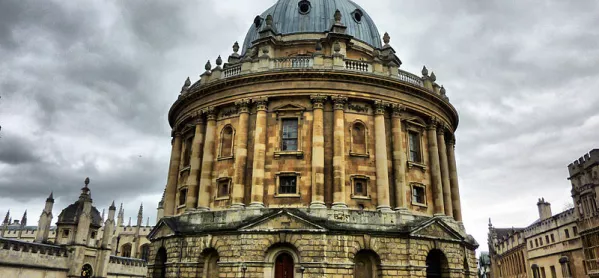Elite universities have been told to do more to improve access for disadvantaged children.
Damian Hinds today used a key-note speech on social mobility to say there was a “very legitimate public interest” to ensure attempts to encourage children to attend the top higher education institutions reach “deep into the country” and to every group.
He added that university was key to determining future success and suggested there was “encouraging progress” on social mobility due to increased numbers of children from disadvantaged backgrounds attending them.
But the education secretary said it was “not acceptable” that 18-year-old applicants from the most advantaged areas of the country are “still nearly five-and-a-half times more likely” to enter the most selective universities than their disadvantaged peers.
The Office for Students has been asked to identify the best approaches for getting children from different backgrounds into university - including the most selective.
Mr Hinds also said more needs to be done at schools in light of data which shows private schools were responsible for 7 per cent of the school population but 40 per cent of those who went to Oxbridge universities in 2016-17.
He added private schools represent 14 per cent of everyone doing A-levels and 25 per cent of students getting three or more As.
The education secretary later highlighted an “expectation and knowledge gap”, pointing to middle-class parents encouraging their children to choose harder subjects such as maths, history and Mandarin as a “signalling device” to universities and employers.
His remarks came as he delivered his first major speech on social mobility during a Resolution Foundation event in London.
Mr Hinds said universities are expected to spend £860 million to “improve access and success for disadvantaged students”, adding it needs to be spent well and the challenges faced need to be recognised.
He went on: “The latest statistics on destinations of sixth form and college students show that disadvantaged white pupils are less likely to be studying in higher education the next year than disadvantaged pupils from any other ethnic group.
“And even though disadvantaged black pupils are almost twice as likely to go to a top third university as white disadvantaged pupils, they are both similarly under-represented at the most selective universities, including the Russell Group.”
Mr Hinds also highlighted regional variations in England, noting one in five disadvantaged pupils from London go to a top third university compared to one in 17 from the North East.
Pressed later by reporters, Mr Hinds said: “Do I think that elite universities are biased against disadvantaged children? No, I don’t think instinctively they are - I think they want people to be able to benefit from what they have to offer.
“But I think we need to go further, they need to go further. There’s a lot of money being spent on these access programmes and so on and there’s a very legitimate public interest in making sure that absolutely reaches out as deep into the country and to every group as it can.
“There is a role for things like protected admissions but there’s also a role for information-sharing, and there’s already some great programmes to try and encourage more kids and indeed families and teachers to come and see some of those top universities and not get the impression that ‘that’s not for the likes of me’.
“We need to make sure that happens more and more so opportunity is truly equally spread.”




